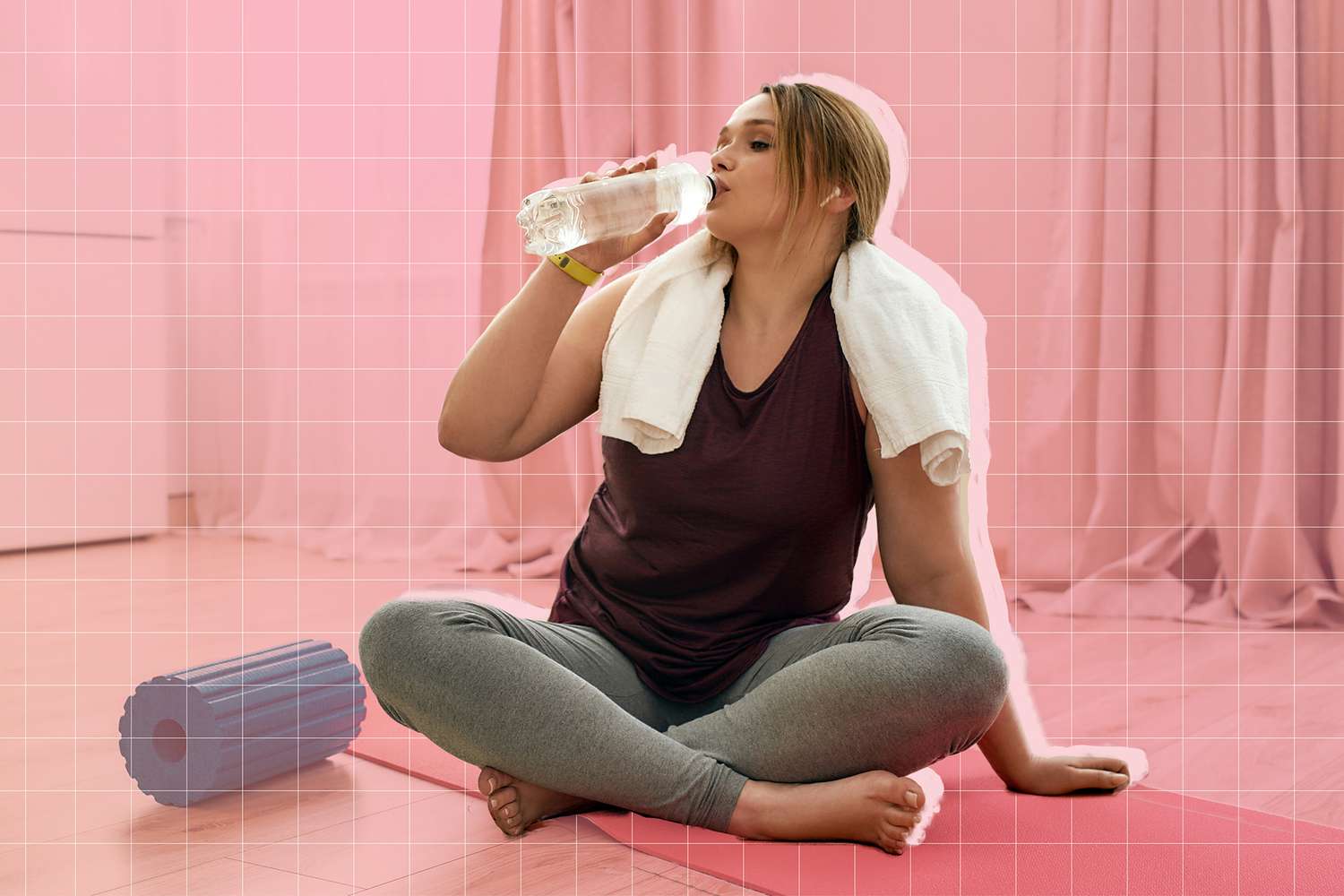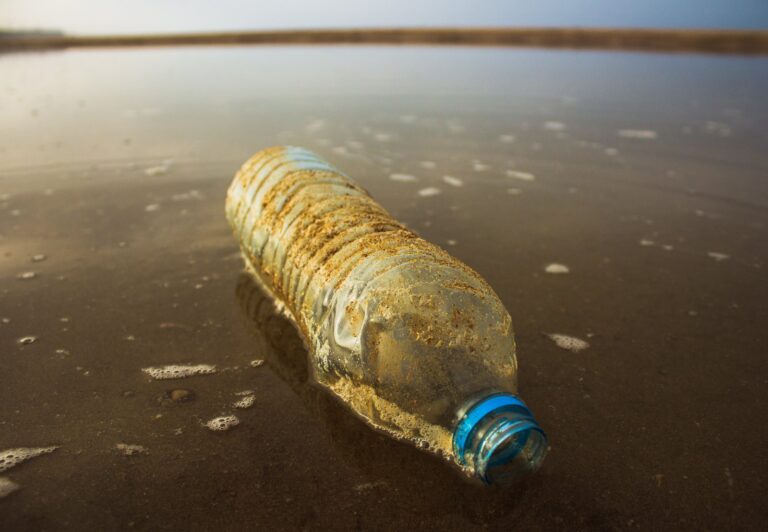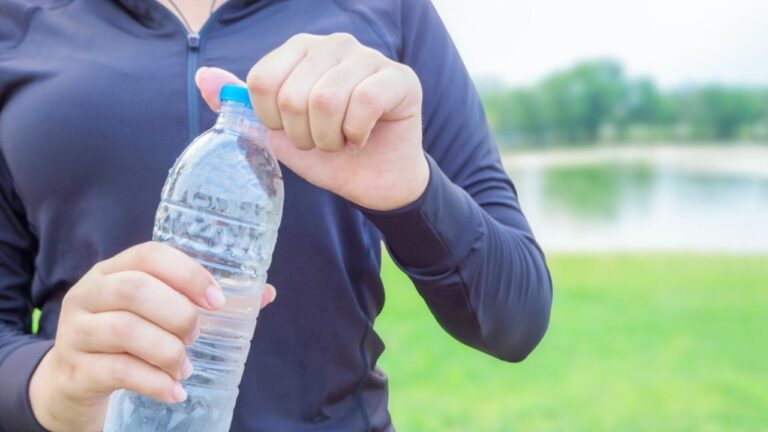Water is an essential component of our daily lives. It keeps us hydrated, helps our body function properly, and plays a vital role in maintaining overall health. When it comes to weight management, there are various claims and myths surrounding the impact of water on weight gain or weight loss. In this article, we will explore the relationship between bottled water and weight, debunk common myths, and provide evidence-based information.
I. The Impact of Water on Weight
Water itself does not directly cause weight gain or weight loss. However, it can play a significant role in weight management in the following ways:
1. Hydration: Drinking an adequate amount of water helps to keep the body hydrated. Proper hydration is crucial for optimal body function and metabolism, which can indirectly support healthy weight management.
2. Calorie Intake: Choosing water as your main beverage can help reduce calorie intake compared to sugary drinks or beverages high in calories. By opting for water instead of calorie-dense options, you can create a calorie deficit that may contribute to weight loss or weight maintenance.
3. Appetite Control: Drinking water before meals can help promote a feeling of fullness, leading to reduced calorie intake during the meal. This can support weight management by preventing overeating.
Debunking Common Myths
There are several myths surrounding the relationship between bottled water and weight. Let’s debunk some of the most common ones:
1. Bottled Water Causes Weight Gain: There is no scientific evidence to suggest that drinking bottled water directly causes weight gain. Weight gain is a result of consuming excess calories and a lack of physical activity.
2. Drinking Water Before Bed Leads to Weight Gain: Consuming water before bed does not directly contribute to weight gain. However, it is important to note that drinking excessive amounts of any liquid, including water, before bed may increase nighttime trips to the bathroom and disrupt sleep patterns.
3. Drinking Ice-Cold Water Burns Calories: While it is true that drinking ice-cold water requires the body to expend energy to warm up, the calorie burn is minimal and not significant enough to contribute significantly to weight loss.
In conclusion, bottled water itself does not cause weight gain or weight loss. However, proper hydration and choosing water as your main beverage can support weight management by promoting overall health, reducing calorie intake from other beverages, and helping control appetite. It is essential to maintain a balanced diet, engage in regular physical activity, and consult a healthcare professional for personalized advice on weight management.
II. Calories in Bottled Water
Understanding the Nutritional Content
When it comes to maintaining a healthy weight, the number of calories consumed plays a significant role. Water is often seen as a zero-calorie beverage, but does that hold true for bottled water? Let’s explore the nutritional content of bottled water and its effects on weight gain or loss.
It’s important to note that most types of bottled water do not contain any calories. They are simply purified or spring water, which means they have no added sugars, fats, or other macronutrients. The absence of calories makes bottled water a great choice for those looking to stay hydrated without increasing their calorie intake. Additionally, drinking water can help boost metabolism and promote feelings of fullness, which can aid in weight management.
However, there are some flavored or enhanced varieties of bottled water available in the market that may contain additional ingredients, including natural sweeteners or electrolytes. These additives can slightly increase the calorie content of the water. It’s crucial to read the nutrition label and ingredient list to determine the calorie content of flavored or enhanced bottled water before consuming it.
Effects on Weight Gain or Loss
Considering that most types of bottled water are calorie-free, they do not directly contribute to weight gain. In fact, replacing high-calorie beverages like sugary sodas or juices with bottled water can be a beneficial strategy for weight loss or maintenance. Water itself has no calories, but it can help promote a feeling of fullness and reduce calorie intake from other sources.
Drinking an adequate amount of water throughout the day can also support the body’s natural detoxification processes and optimize metabolic function, which may indirectly assist in weight loss efforts. Staying hydrated can also prevent dehydration-related water retention and bloating, which can make you feel and look heavier.
However, it’s essential to note that drinking an excessive amount of any beverage, including bottled water, can contribute to weight gain if it leads to an overall increase in calorie intake. It’s crucial to maintain a balanced and varied diet and consider overall calorie intake from all sources for effective weight management.
In conclusion, most types of bottled water are calorie-free and do not directly contribute to weight gain. In fact, they can be a helpful tool in maintaining hydration and supporting weight loss or maintenance efforts. Remember to read the nutritional labels of flavored or enhanced bottled water for accurate information on calorie content.
III. Hydration and Metabolism
The Link Between Water and Metabolism
Water plays a crucial role in our body’s metabolism, which refers to the chemical reactions involved in maintaining our everyday bodily functions. Hydration is essential for these processes to occur efficiently. Here are some key points about the link between water and metabolism:
1. Maintaining Body Temperature: Our body uses water to regulate body temperature through processes like sweating and evaporation. Without adequate hydration, our body may struggle to regulate temperature, resulting in a slowed metabolism.
2. Digestion and Nutrient Absorption: Water is necessary for proper digestion and the absorption of nutrients from the food we consume. It helps break down food and ensures that nutrients are efficiently delivered to cells for energy production.
3. Energy Production: Water is involved in the conversion of food into energy. Without sufficient hydration, our body’s ability to convert food into usable energy may be compromised, leading to a sluggish metabolism.
How Water Intake Affects Weight
Water intake can have an impact on weight management, although it is important to note that it is not a direct cause of weight gain or loss on its own. Here are some ways water intake can influence weight:
1. Calorie Intake: Drinking water before meals can help promote a feeling of fullness, leading to reduced calorie intake during the meal. This can indirectly contribute to weight management by preventing overeating.
2. Metabolic Rate: Staying adequately hydrated can support a healthy metabolic rate. Dehydration, on the other hand, can lead to a decrease in metabolic rate, which may make it more difficult to maintain or lose weight.
3. Water Retention: Paradoxically, dehydration can lead to water retention as our body tries to conserve water. This can result in temporary weight gain. Drinking enough water can help prevent this water retention.
It’s essential to maintain a balanced and varied diet, engage in regular physical activity, and consider hydration as part of an overall healthy lifestyle for weight management. Water is a vital component of our body’s functions, and staying adequately hydrated is crucial for overall well-being.
To learn more about the importance of water and its role in metabolism, you can visit this Wikipedia article for further information.
IV. Psychological Effects of Water
Water’s Influence on Appetite and Satiety
Water plays a vital role not only in hydration but also in regulating appetite and promoting feelings of satiety. Research suggests that drinking water before meals can help reduce calorie intake, leading to weight loss or maintenance. Here’s how water can influence appetite and satiety:
1. Increased Fullness: Drinking water before a meal can increase a sense of fullness, which may lead to fewer food cravings and smaller portion sizes.
2. Delayed Hunger: Dehydration can sometimes be mistaken for hunger. Drinking water can help quench thirst and delay the feeling of hunger, preventing unnecessary snacking.
3. Replace High-Calorie Beverages: Opting for water instead of high-calorie beverages like soda or sugary juices can significantly reduce calorie intake and aid in weight management.
While staying hydrated with water is essential for overall health, it’s important to note that water alone is not a miracle solution for weight loss. It should be combined with a balanced diet and regular exercise for optimal results.
Can Bottled Water Aid Weight Loss?
There is no scientific evidence to support the claim that bottled water specifically aids weight loss. However, drinking water in general can contribute to weight loss or maintenance by promoting hydration, reducing calorie intake, and replacing high-calorie beverages. The choice between bottled water and tap water depends on personal preference and local water quality. Here are a few considerations:
1. Convenience: Bottled water is more convenient for on-the-go consumption and eliminates concerns about water quality while traveling.
2. Cost: In many cases, tap water is more cost-effective than bottled water.
3. Environmental Impact: Bottled water generates plastic waste, while tap water is more environmentally friendly.
It’s important to ensure that the water you consume, whether bottled or from the tap, is safe and meets local quality standards. Drinking enough water, regardless of its source, can contribute to a healthy lifestyle and help support weight loss or maintenance goals.
It’s always a good idea to consult with a healthcare professional or a registered dietitian for personalized advice and recommendations on the best practices for weight management.
V. Hormonal Factors
Water and Hormonal Balance
Water plays a crucial role in maintaining hormonal balance in the body. Hormones are chemical messengers that regulate various bodily functions, including metabolism and appetite. When the body is dehydrated, it can disrupt the delicate balance of hormones, leading to potential weight gain or loss.
Impact on Weight Regulation
1. Increased Water Intake and Weight Loss: Some studies suggest that drinking water can aid in weight loss. One reason is that water can temporarily increase metabolism, leading to the burning of more calories. Additionally, drinking water before meals may reduce calorie intake, as it can help promote a feeling of fullness, preventing overeating.
2. Dehydration and Weight Gain: On the other hand, dehydration can potentially contribute to weight gain. When the body is dehydrated, it may hold onto excess water, leading to bloating and water weight gain. This temporary weight gain can mask actual fat loss and make it difficult to track progress accurately.
3. Water and Appetite Regulation: Staying adequately hydrated can also help regulate appetite. Thirst can sometimes be mistaken for hunger, leading to unnecessary calorie consumption. By drinking enough water throughout the day, one can better differentiate between hunger and thirst, helping to avoid unnecessary snacking or overeating.
It’s important to note that while water can play a role in weight regulation, it is not a magical weight loss solution on its own. A balanced diet, regular exercise, and healthy lifestyle choices are still essential for achieving and maintaining a healthy weight.
Before making any significant changes to your diet or lifestyle, it’s always best to consult with a healthcare professional or a registered dietitian who can provide personalized advice and guidance.
For more information on the topic, check out this Wikipedia article on water intoxication.
VI. Fluid Retention and Weight
Fluid retention, also known as water weight, has long been a subject of debate when it comes to its effects on weight gain or loss. Some people believe that drinking bottled water can cause weight gain, while others argue that it can actually help with weight loss. Let’s take a closer look at the relationship between bottled water and weight.
Dealing with Water Retention
Water retention occurs when excess fluid builds up in the body’s tissues, leading to swelling and bloating. This can be caused by various factors, including hormonal changes, a high-sodium diet, certain medications, and underlying medical conditions. It’s important to note that water retention is not the same as gaining fat or muscle mass.
While drinking water, including bottled water, is crucial for overall health and hydration, excessive fluid retention can make you feel bloated and affect the number on the scale. However, it’s essential to distinguish between temporary water weight and long-term weight gain.
Tips for Managing Water Weight
If you’re concerned about water weight and its impact on your weight, here are some tips to help manage it:
1. Stay Hydrated: Aim to drink enough water throughout the day to stay hydrated. Drinking water can actually help flush out excess sodium and reduce water retention.
2. Reduce Sodium Intake: Consuming too much sodium can contribute to water retention. Be mindful of your salt intake and try to opt for low-sodium options when possible.
3. Eat a Balanced Diet: A diet rich in fruits, vegetables, whole grains, and lean proteins can help maintain a healthy weight and minimize water retention.
4. Exercise Regularly: Physical activity can help with water weight management by promoting circulation and sweating, which can help eliminate excess fluid.
5. Limit Processed Foods: Processed foods often contain high amounts of sodium and additives, which can contribute to water retention. Opt for fresh, whole foods instead.
6. Manage Stress: Chronic stress can contribute to water retention. Engage in stress management techniques such as meditation, yoga, or deep breathing exercises.
While drinking bottled water itself may not directly cause weight gain or loss, staying hydrated and adopting healthy lifestyle habits can help manage water weight and contribute to overall weight management.
It’s important to consult with a healthcare professional if you have concerns about your weight or water retention, as they can provide personalized advice based on your specific situation and needs.
VII. Understanding the Role of Bottled Water in Weight
When it comes to the relationship between bottled water and weight management, it’s important to consider several factors. While drinking water can aid in weight loss by increasing feelings of fullness and boosting metabolism, the type of water consumed may also play a role. Here are some key takeaways regarding the role of bottled water in weight:
1. Calories and Sugar: One advantage of bottled water is that it is typically calorie-free and sugar-free, making it a better choice for weight management compared to sugary drinks like soda or fruit juices.
2. Hydration and Appetite: Staying hydrated is essential for overall health, and drinking water can help prevent overeating by reducing hunger and promoting satiety. Choosing bottled water can contribute to maintaining hydration levels and potentially support weight loss efforts.
However, it’s important to keep in mind that while bottled water can be a healthier choice compared to sugary beverages, it is not a magical solution for weight loss. Other lifestyle factors, such as a balanced diet and regular physical activity, are crucial for achieving and maintaining a healthy weight.
Key Takeaways and Recommendations
Based on the information presented, here are some key takeaways and recommendations regarding bottled water and weight management:
1. Choose Water Over Sugary Drinks: Opt for bottled water or plain tap water instead of sugary beverages to avoid unnecessary calories and sugar intake.
2. Stay Hydrated: Make sure to drink enough water throughout the day to stay properly hydrated. This can help prevent overeating and support overall health and well-being.
3. Balance is Key: While hydration is important, it’s essential to maintain a balanced diet and engage in regular physical activity for overall weight management.
4. Consider Tap Water: If access to safe and clean tap water is available, it can be a more cost-effective and environmentally-friendly option compared to bottled water.
Remember, the key to weight management is adopting a holistic approach that includes a well-balanced diet, regular exercise, and healthy lifestyle habits. While bottled water can be a part of a healthy hydration routine, it is just one piece of the puzzle. Stay mindful of overall calorie intake and make choices that promote overall well-being.
By making informed choices about the type of water you consume and focusing on overall dietary choices, you can support your weight management goals while staying properly hydrated. Cheers to a healthier lifestyle!




